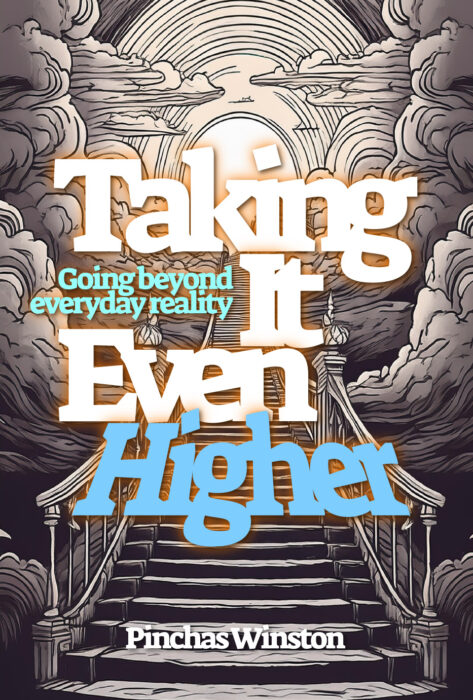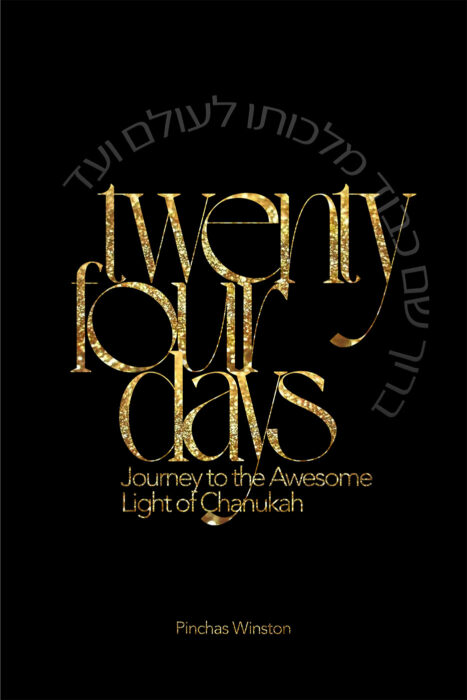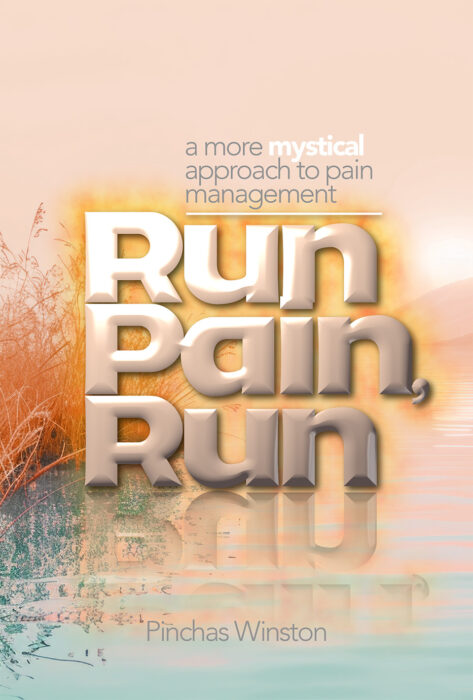Parashas Behar-Bechukosai, Issue #1096 – By Rabbi Pinchas Winston
Friday Night
THE PARSHA BEGINS with a reference to Har Sinai. Considering that we know the Jewish people had yet to leave the mountain, it seems to be a superfluous fact. This is why Rashi explains:
Just as with respect to Shmittah its general principles and details were all stated at Sinai, likewise all of them (the rest of the mitzvos) were stated at Sinai, their general principles [together with] their details. (Rashi, Vayikra 25:1)
The Kli Yakar has a different explanation. He says that the Torah equates Eretz Yisroel with Har Sinai, because both make you wise. Even the air of Eretz Yisroel itself, the Gemora says, (Bava Basra 158b) makes a person wiser.
Perhaps there is another point to be made, one that becomes increasingly relevant as we move further away in time from the giving of Torah. Everything comes down to bitachon and emunah, trust and faith in God, but the mitzvah of Shmittah makes this clear like no other mitzvah. It is one thing not to work on Shabbos for a day. It is something very different not to work fields for an entire year, at least when that was the only source of livelihood, and importing from elsewhere was difficult.
Similarly, nothing requires bitachon and emunah more than a person’s connection to Torah from Sinai, especially thousands of years since it happened. A long time ago if a child or even an adult asked, “How do you know that God spoke at Mt. Sinai?” they could ask their father who was actually there when it happened, or their grandfather who was there, or their grandfather who knew their own grandfather who had heard God speak. Once upon a time, there had been eyewitnesses to the event.
But as time passed, so did the generations. Eventually the eyewitnesses all died out, and a little later, the eyewitnesses to the eyewitnesses as well. The number of people asking the question increased with time while the number of people who could answer it with personal experience decreased. Assimilation was inevitable, especially as Jews were spread out across the Diaspora.
Ironically, the Jewish people face a similar crisis today regarding the Holocaust. Some people started questioning the reality of the Holocaust only decades after it had finally ended. At that time, there were still survivors who could recount the horrors of it, or children of survivors who knew the story from their parents. But 78 years later, the survivors are virtually gone, and many of their children would rather leave it all behind.
So when people ask the question today—if they even ask the question today—“How do you know God gave the Torah at Har Sinai?” we have developed clever seminars and presentations to hopefully “help” people come to the conclusion that, given all the “evidence,” the Torah had to have come from God and at Mt. Sinai. There has been some success, but not to the extent that the presenters have hoped for.
Shabbos Day
GOD TOLD THE Jewish people that if they will ask: “What will we eat in the seventh year? We will not sow, and we will not gather in our produce!” that “I will command My blessing for you in the sixth year, and it will yield produce for three years.” That was enough food for the sixth, seventh, and even the eighth year as well.
So what then was the problem? Why did the Jewish people stop keeping the Shmittah year, choosing to pass up a three-year free ride for an extra year of hard work? God even made it easier for them by giving them plenty of food well in advance of the Shmittah year, giving them the confidence to take the year off. Who wouldn’t want to keep that going?
The same can be said for Torah. The Jewish people had an experience unparalleled in the history of mankind. It was our golden ticket to the World to Come. It was our path to personal fulfillment and a meaningful life. Forgetting it was clearly spiritual suicide that could eventually lead to physical disaster, and did. That’s why Yirmiyahu wrote Eichah, which asked only one question, “How?”
They have been asking the same question about the CEO of Angel’s Bakery who led the protest last week in front of the home of Gadol HaDor, Rav Gershon Edelstein, shlita, Rosh Yeshiva of the Ponevezh Yeshiva. The businessman may be a Leftist and anti-Charedi, but he is also the Chairman of the Board of a multi-billion shekel corporation, whose many clients also include yeshivos loyal to their Gadol HaDor. Needless to say, the fallout was swift and expensive as many yeshivos immediately cancelled their contracts and switched to other suppliers. How could he not have seen that coming? Others did, which is why the protest was smaller than planned.
The Gemora says that without Torah, a Jew, any Jew, can be more chutzpadik than any other people in the world (Beitzah 25b). The CEO of Angel’s Bakery and those who joined him proved the point. While some called for his firing, others called for his psychological testing because they just could not imagine how he could put himself into such a situation.
But then again, isn’t that most of the Jewish nation at this stage of history, including many religious Jews? Isn’t that what Yirmiyahu asked of his generation who even knew what the Temple was, and had seen it functioning with their own eyes, miracles and all?
Some of our practices today, at least in some circles, are not appropriate for a Torah way of life. Some things “religious” Jews are doing today are blatant transgressions, yet considered “acceptable” anyhow. It’s like people are hedging their bets by allowing themselves to enjoy this world somewhat just in case there really isn’t a World to Come, or its not cracked up to be as good as they have been told. “Yeah, yeah,” they seem to plan to say on their day of judgment, “I shouldn’t have done those things, but at least I kept Shabbos and Kashrus!”
Maybe that argument will work. Maybe God will have mercy because we are thousands of years after Har Sinai, and have gone through millennia of exile, persecution, and assimilation. Maybe He’s more impressed after all that by what we do keep, and not by what we don’t. What does God expect from us at this late stage of history and so close to the Messianic Era?
Unquestionably, it’s a person-by-person answer. And unquestionably, it’s a bitachon and emunah issue. At least, that’s what God told Iyov a long time ago about a long time into the future. Actually, He was talking about our time.
Seudas Shlishis
WHEN IYOV FINALLY broke his silence and questioned God about his unusually difficult and unexpected Hashgochah Pratis, God told him a few things to put everything into perspective. This was one of them:
…To grasp the corners of the earth so that the wicked shall be shaken from it? (Iyov 38:13)
To grasp the corners of the earth: Moreover, in all your days, did you command [anyone] to grasp the corners of the earth like a man who grasps the corners of a garment and shakes it? So am I destined to grasp it (the earth) by its corners and shake the wicked [out of it]. (Rashi)
Columbus has already confirmed that the earth has no corners, so this has to be a metaphor. God told Iyov that in the future, He will “shake out” the world like a garment until all the “dirt” has fallen from it. How? By creating events that will test the limits of a person’s trust and faith in God, and nothing does that better than “evidence” against the existence of God, and against the validity of Torah. The weaker a person’s trust and faith in God and Torah is, the faster they will fall off and the harder they will fall.
Oh, they won’t think they have fallen at all. Instead, they will think that they are being the clever ones, that they are doing the smart thing. They will look at those still hanging on as the fools, people unable to let go of ancient traditions in a modern world. They might feel sorry for them at first, but that sadness will quickly turn into terrible disrespect…all because they did not have sufficient bitachon and emunah. The Gemora predicted this long ago (Sotah 49b).
Because there is no evidence against the existence of God, or against the validity of Torah. There is only the ignorance of the evidence for both, and a wily yetzer hara that has filled that void and taken over the controls. And once that happens, a person loses the wherewithal to ask, “How,” at least until after the damage is so complete and obvious that it is the only question they can ask.
Ain Od Milvado, Part 50
I DIDN’T PLAN it this way, but Part 50 happens to coincide with the parsha that discusses the mitzvah of the Yovel year, the 50th year of the Shmittah cycle. Nice.
It has been proven that leaving the land unworked every seven years strengthens the land. True as that is, it is not the reason for the mitzvah of Shmittah. We have been commanded in the mitzvah of Shmittah to remember ain od Milvado. The deed may be in our name, but in reality, we are like sharecroppers on God’s land, and Shmittah reminds us of that.
But as we count the sefirah each day on our way to the holiday of Shavuos, the fiftieth day of the Omer, we should be mindful of the importance of the number fifty in terms of our connection to God and Torah. Any Torah reference to fifty is an allusion to the Nun Sha’arei Binah, the Fifty Gates of Understanding with which God made the world and gave us Torah (Nedarim 21b).
It is a very kabbalistic discussion, the Nun Sha’arei Binah, but suffice it to say that it is the specific knowledge that allows us to perceive God in all that exists and happens. It’s not only about being smart, but about being smart in a particular way. Someone might be smart enough to build a computer from scratch on their own, but that won’t get them to the World to Come. But someone who “sees” God and lives accordingly will definitely get there, even if they don’t know the first thing about technology.
But the thing about 50 is, you can’t really get to it if you don’t go through all the numbers along the way. Each Shmittah cycle of seven years elevated a person closer to the reality of the Nun Sha’arei Binah and ain od Milvado. On that level, you don’t need bitachon and emunah anymore, because the reality of God becomes crystal clear, and the reality of Shmittah becomes a person’s way of life.
Rabbi Pinchas Winston
Thirtysix.org



















